On 1 February, Steve Sumner in Auburn, California, observed a peculiar phenomenon in the sky. A bright elongated spot, which was apparently not lit directly by sun rays, occurred in front of an Altocumulus cloud. In the photo the Sun’s rays projecting downwards from small openings in the cloud layer reveal that the Sun is positioned behind the cloud at the same location as the spot. The other photo of the display should stand here, as well, for comparision ( 1 ).
This phenomenon is the reflection subsun, a rare halo of which only two previous documentations are known. Its formation involves two reflections from horizontal surfaces: the Sun rays are first reflected on a body of water, and then again on plate crystals in the sky, which precipitate from the Ac cloud that blocks the Sun. This way the reflection subsun is seen just where the Sun should be.
Identifying the reflective surface was not obvious in the beginning for Sumner. “I could not figure out for a long time where the body of water might be that would reflect the sun in such a way that the halo could appear,” he wrote. Then he remembered a place called Yolo Bypass, a large area to the west of the obsering site that is designed to flood during the winter and spring. “Due to the heavy rains we have experienced over the last several weeks, the bypass has been filled with water, and that must be the source of the required reflective surface,” Sumner said.
In the map linked, the green arrow marks the point of observation, the yellow line starting there shows the Sun’s direction, and the large blue area that it intersects is the Yolo Bypass ( 2 ).
Knowing that the Sun was at 6.5° elevation during the observation, and assuming that the Yolo Bypass at 56 km from the observing site was the primary source of light for the reflection subsun, Sumner calculated that the ice crystals were at about 3500 meter elevation, which is an agreeable value for Ac clouds.
Sumner’s photograph adds the third documented case of reflection subsun. Earlier, in Finland, Jarkko Korhonen had photographed such a halo in Oulu in October 1998, and then Jenni Elina Holopainen on 18 May 2006 in Pyytivaara ( 3 ).

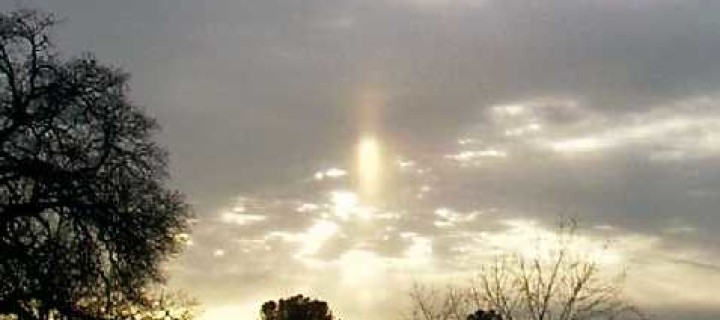
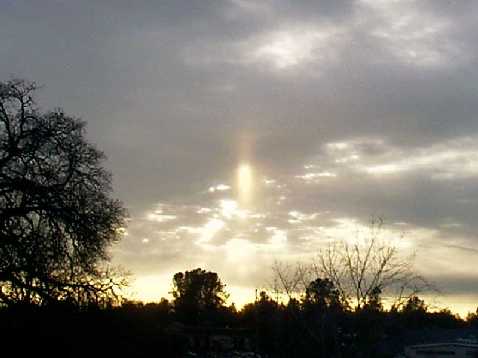
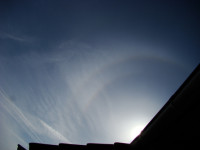
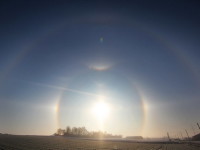
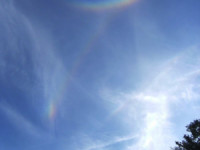
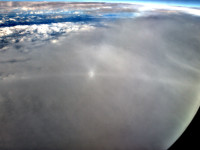
Reflection subsuns do occur! Another observation so soon after Jenni’s observations gives hopes for us mortals. Usually we dont look for halos in the daytime unless sun is shining, so chances for spotting reflection subsun may be increased with some thought rehabilitation. Have to start keeping reclection subsun in mind every time the Ac is precipitating virga.